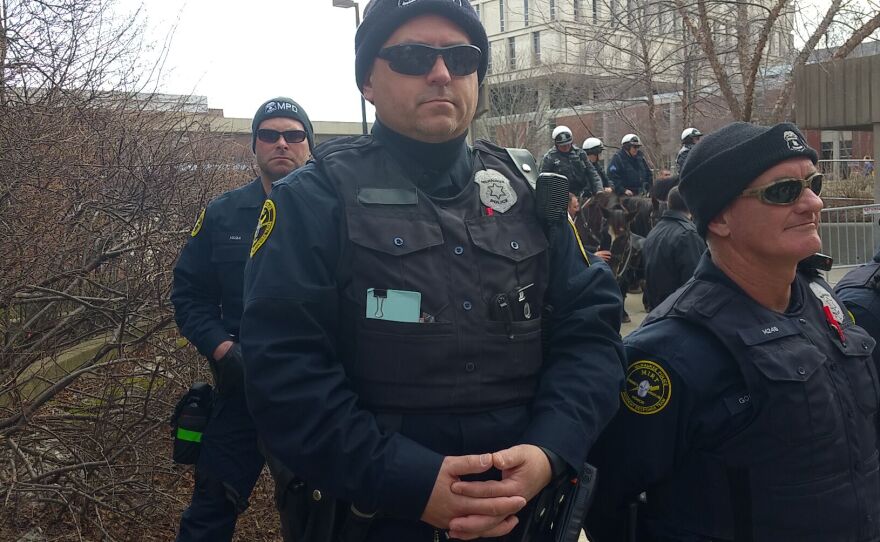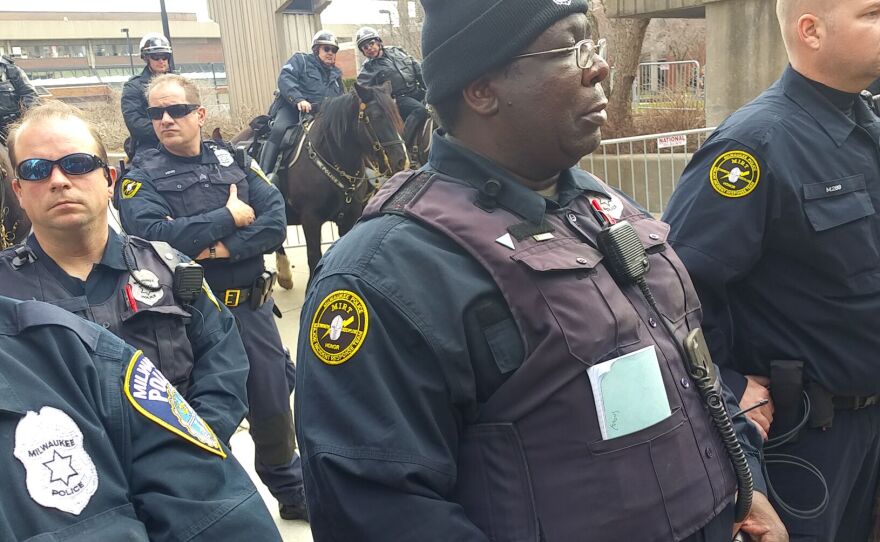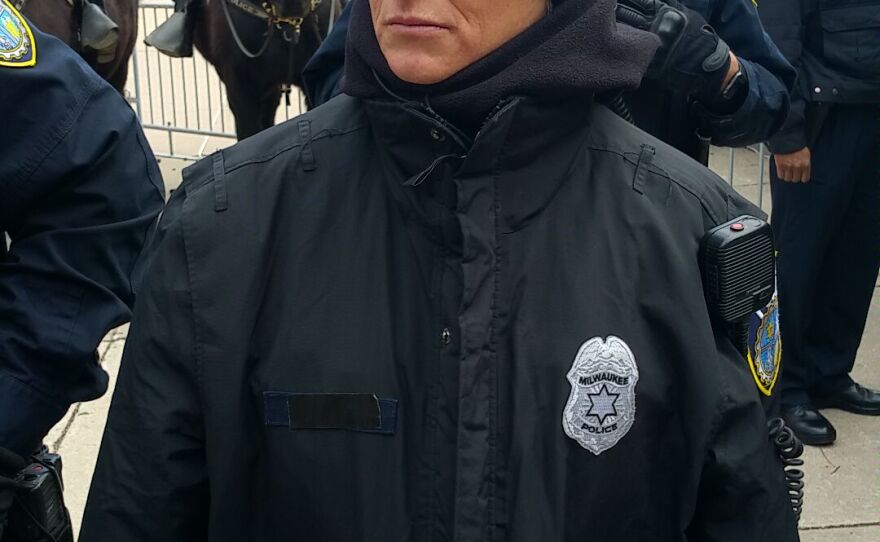According to the Milwaukee Police Department’s policy and the city statute, officers are supposed to wear their names visibly above their pocket. So what happened on UWM’s campus Sunday?
Photos show some officers hiding their nametags with black tape or missing them entirely.
Chris Ahmuty, executive director of the ACLU of Wisconsin, says the violation is not just about the rule, but the message it sends.
“It’s important when people are excising their first amendment rights, their free speech rights and their right to free assembly that the police don’t do anything to intimidate the protesters by sending a signal that they want to hide their identity and don’t wish to be held accountable for what they might do," he says.
People who took photos at the demonstration, posted them to twitter asking MPD what was happening.
Initially, the department replied to the tweets with one reading, "MPD policy was violated with covered up nametags. Corrective action has been taken and MPD is investing."
Since that tweet, the department has released a written statement about events:
Police Chief Flynn has also directed that immediate corrective action be taken to ensure that future violations do not occur. Our policy allows officers to replace their name tag with a unique identifying number when they are involved in a protest/demonstration/rally type of deployment. This policy was developed several years ago in response to the occurrence of identity theft and personal threats to officers and their families subsequent to major events, rallies and demonstrations across the country over the past few years.
@MicheleMcCorma1 These photos indicate a violation of MPD policy. Corrective action has been taken and MPD is investigating.
— Milwaukee Police (@MilwaukeePolice) April 4, 2016
Hi @MilwaukeePolice Is it normal for officers to wear nametags while on duty? Why aren't officers today wearing them at #UWM today?
— Eliza Bettinger (@ElizaBettinger) April 3, 2016
.@MilwaukeePolice Thanks for your response. When will the results of the investigation be made public?
— Eliza Bettinger (@ElizaBettinger) April 4, 2016
Ahmuty says, giving officers the benefit of the doubt, they might have been concerned about their safety.
“Anticipating a threat is not the same as having a true threat,” he says. “And sure we want police and their families to be safe, but violating the constitution isn't necessary to keep our officers safe."









